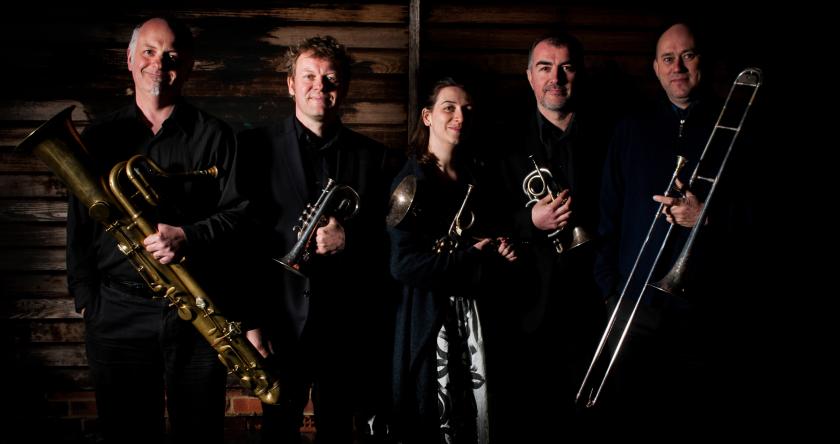The Prince Regent’s Band was formed in 2013 and, like very many chamber ensembles, was created when a group of us found that we shared a number of interests in common. The musicians that make up the ensemble are all specialist historic brass players and can be regularly heard performing in principal chairs with a number of leading period instrument orchestras. We all shared an enthusiasm for and a curiosity in brass chamber music from the long 19th century.
This period, roughly from the French Revolution in 1789 through to the end of the First World War in 1918, encompasses an incredibly active and experimental period in brass playing. During this period the instruments changed radically. At the beginning of this period, natural horns and natural trumpets, slide trumpets and slide trombones, keyed trumpets and serpents were predominant. Whilst at the end, brass instruments with valves had become the norm.
Böhme is one the many musicians who travelled to pre-Revolutionary Russia to make their career
The members of The Prince Regent’s Band wanted to explore both these instruments and the music that was written for them. This was made already feasible by each of us having extensive personal collections of instruments, but our various quests would not be possible without the generous help we have had from other private collectors, as well as institutions such as The Bate Collection in Oxford and the University of Edinburgh.
When the ensemble first began performing, many colleagues asked us when we were going to tackle the “Ewalds”. The Victor Ewald quintets are well-known works in the “modern” brass quintet literature and many brass players know and love these pieces as some of the earliest quintets in their repertoire. They are consummate chamber music: lyrical, complex and exciting works to perform. It is easy to see why they have become such popular pieces for brass quintets. However, Ewald conceived these pieces for a radically different group of instruments: instead of the “modern” formation of two trumpets, French horn, trombone and tuba, Ewald was writing for two cornets, althorn, tenor horn and tuba. This is the combination of historical instruments that the group have brought together for our recent Russian Revolutionaries CD and tour.
While the Ewald works were always on our wish list of works to explore, it was the Oskar Böhme Trumpet Sextet that instigated this project. Böhme is already well known to trumpet and cornet players, and he wrote a number of solo works which are still popular today. Whilst Ewald was a native Russian, Böhme is one the many musicians who travelled to pre-Revolutionary Russia to make their career. Sadly, like many other musicians and many other immigrants, he was viewed with suspicion by the post-Revolutionary authorities and was arrested, exiled and eventually executed in 1938. Böhme’s compositions cover a number of different styles and genres but of all of them, his Trumpet Sextet (for cornet, two trumpets, bass trumpet or althorn, tenorhorn and tuba) really stands out, as a substantial and important chamber work for brass.













Add comment